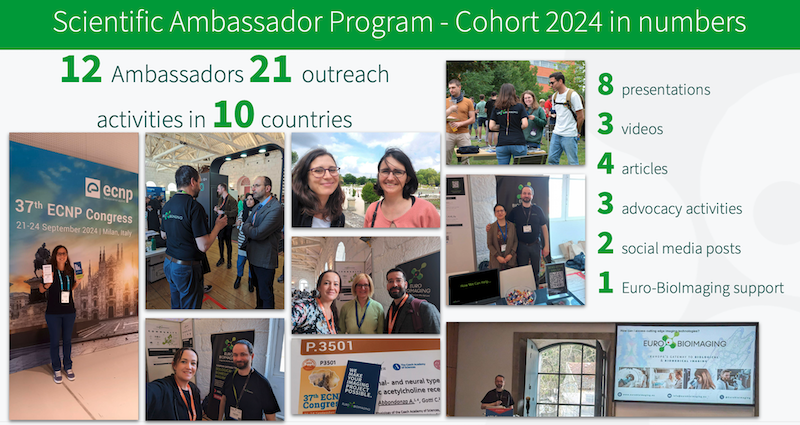
Correlated Imaging Series: Correlative super resolution and electron microscopy methods for nanomedicine
On Friday, March 18that 13:00 CET, Silvia Pujals of the Institute for Advanced Chemistry of Catalonia (IQAC-CISC) delivers a lecture on “Correlative super resolution and electron microscopy methods for nanomedicine,”as part of the Correlated Imaging Series, brought to you by COMULIS and Euro-BioImaging.
Abstract:
Correlative light and electron microscopy (CLEM) entails a group of multimodal imaging techniques that are combined to pinpoint to the location of fluorescently labelled molecules in their ultrastructural context. Correlative super resolution and electron microscopy is one CLEM modality in which super resolution microscopy is used instead of conventional fluorescence microscopy techniques.
Single-molecule localization microscopy (SMLM) is one of the super resolution microscopy families, offering excellent resolution (5–25 nm), multi-colour imaging and quantification capability with single-particle precision. Thus, the improved resolution of SMLM leads to a nanoscale localization precision of the specific fluorescent labels in the ultrastructural reference space provided by EM.
Super-resCLEM methods have been mainly applied to biological samples; here we introduce it for synthetic materials. The decoration of nanoparticles with functional moieties is a key strategy to achieve cell targeting in nanomedicine. The interplay between size and ligand number is crucial for the formulation performance and needs to be properly characterized to understand nanoparticle structure−activity relations. However, there is a lack of methods able to measure both size and ligand number at the same time and at the single particle level. In this lecture, Silvia Pujals will address this issue by explaining how she and her team have introduced a super-resCLEM method, specifically by combining one type of SMLM (DNA-PAINT) with TEM.
Moreover, they are now applying super-resCLEM methods to learn about the trafficking of different nanomaterials inside cancer cells.
Andrian, T., Delcanale, P., Pujals, S.*, Albertazzi, L. Correlating Super-Resolution Microscopy and Transmission Electron Microscopy Reveals Multiparametric Heterogeneity in Nanoparticles. Nano Lett. (2021) 21(12):5360-5368.
About Silvia Pujals
Dr. Pujals is a Ramón y Cajal researcher at the Institute for Advanced Chemistry of Catalonia (IQAC-CSIC). She is also Adjunct Professor at the Department of Electronics and Biomedical Engineering, Faculty of Physics, Universitat de Barcelona.
She obtained her PhD in Organic Chemistry from Universitat de Barcelona (UB) in the field of cell-penetrating peptides. Then she moved to Kyoto University for her postdoc focused on biophysics and electron microscopy. Coming back to Barcelona she became senior researcher at the Nanoscopy for Nanomedicine group at IBEC, working on super resolution microscopy for nanomaterials. With expertise on drug delivery, peptide synthesis and optical and electron microscopy her research aims to combine a rational design of nanomaterials with advanced optical techniques for targeted drug delivery. "
Friday, March 18th, at 13:00 CET
Join via internet: https://us02web.zoom.us/j/760003029 or via phone:
Meeting ID: 760 003 029 Find your local number:https://zoom.us/u/acj97wMY13

More news from Euro-BioImaging


